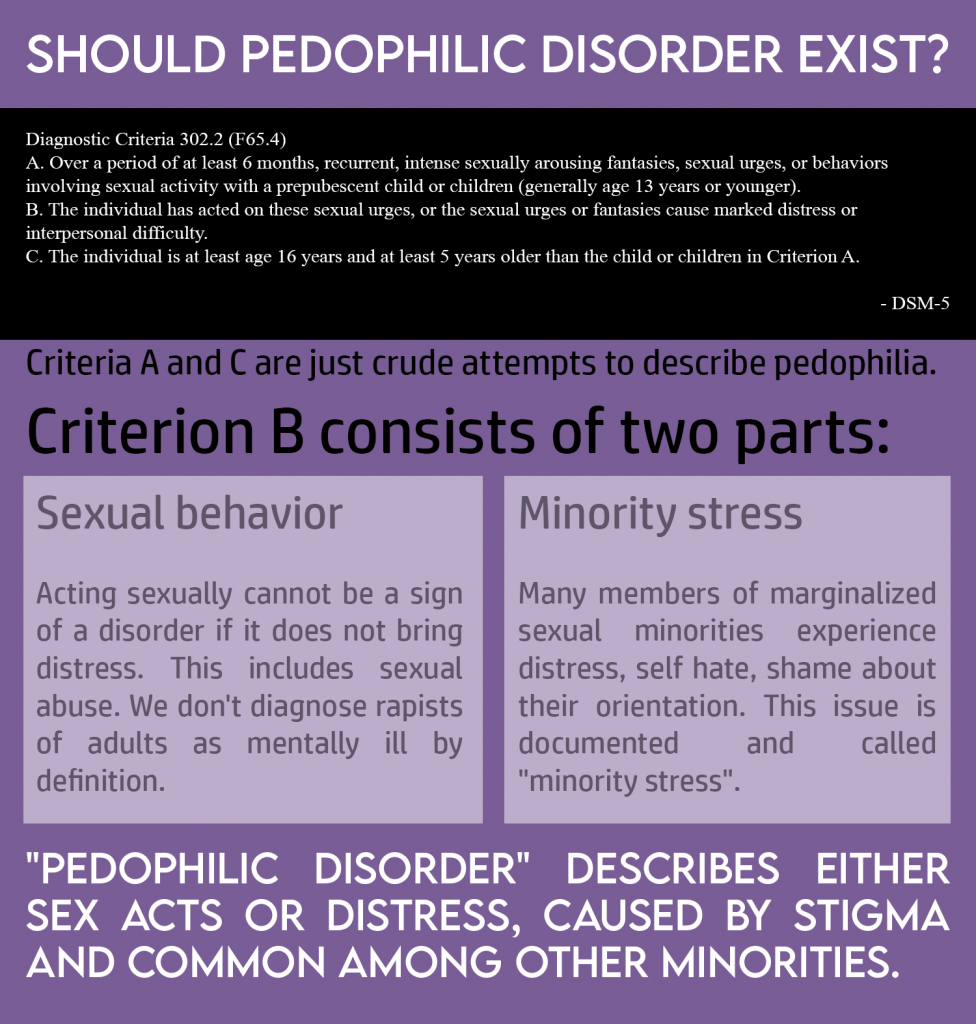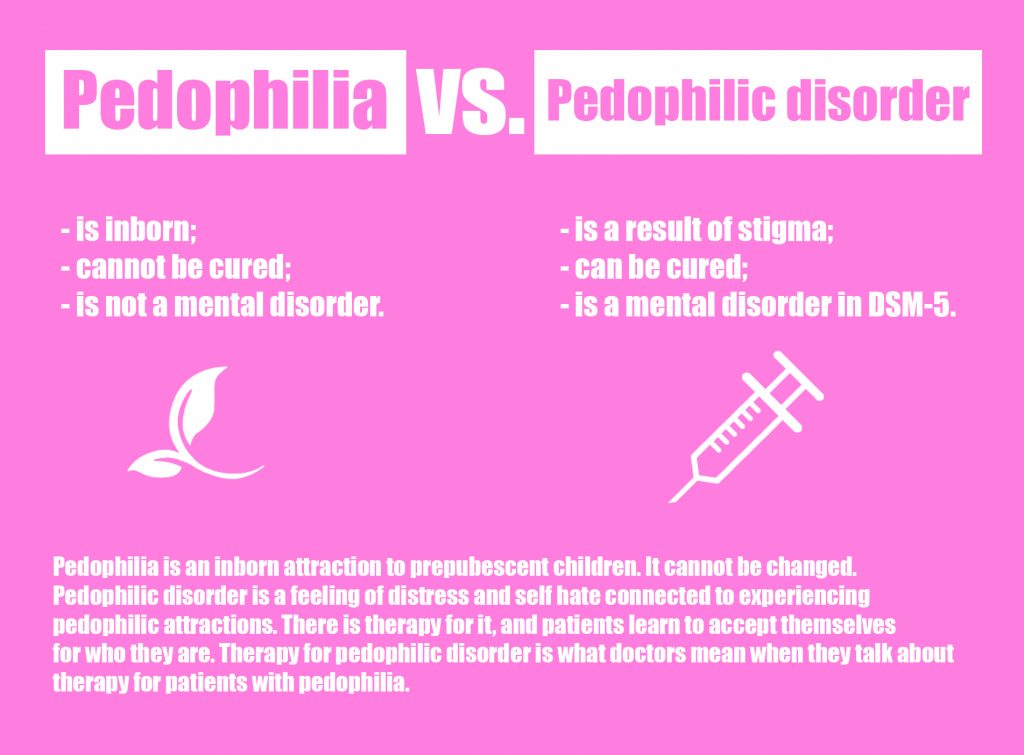Paraphiliac disorders are an unnecessary and harmful diagnostic category. I have written about this multiple times, but never before put all of my thoughts in one place, so here we are.
A while ago I made this infographic about the pedophilic disorder specifically:

I believe it makes my key point clear enough: this term lumps sexual behavior together with emotional distress under a single disorder label.
People with normative sexual interests rarely have their sexual lives pathologized even if they commit rape and/or other sexual acts illegal in a particular country (excluding false attribution of paraphilias to these people as a means of pathologizing). Nobody will say that an adult man who raped an adult woman is suffering from a heterosexual or a teleiophiliac disorder. Uniquely singling out paraphiliacs from the general rule is not justified by any reasons. Our brains work the same, our attractions work the same, why the double standard?
The second argument, minority stress, deals with the other part of this criterion. While working on the page for pedophilic disorder on the Map Wiki, I put the following quotes from Wikipedia and a map’s personal description of pedophilic disorder side by side: “For example, LGBTQ+ youth and adults who have experienced prejudice about their sexual orientation sometimes choose to conceal their sexual identity from others. Concealing such personal information causes significant psychological distress, including intrusive thoughts about the secret, shame and guilt, anxiety, and isolation from other members of the minority group. Internalized homophobia is another proximal stressor prevalent among LGBT individuals. It refers to the internalization of negative social views about homosexuality, which leads to self-hatred and poor self-regard.” from Wikipedia and “For me, it comes with intense feelings of guilt and disgust, self loathing, and even suicidal ideation and tendencies. It does come with urges, but not in the sense that you may think. Instead, I find myself constantly and consistently thinking about being a minor attracted person and how much it impacts my life and my outlook.” from a blog. The parallels are clear, these feelings are caused by similar reasons and manifest in a similar manner.
It’s worth remembering the diagnosis of “ego-dystonic homosexuality” that was added to the DSM after removal of regular homosexuality in 1974 and stayed there under different names till 2013. It also described the distress sexual minority members felt about their attractions. This diagnosis also did not help gay people anyhow, and its removal was a sign of progress, not losses.
Recontextualizing paraphiliac insecurity and self-hate as minority stress would mean admitting that it’s caused by the society’s paramisia, instead of something being “disordered” about the paraphilia itself (“disordered paraphilia”, a term spawned by the “pro recovery” community on Twitter, is something I severely dislike). It would also mean ending the hard line between being “healthy” and being “unhealthy” as a paraphiliac. We’re all let down and traumatized by the current society to different degrees.
Less related to the validity of paraphiliac disorders as diagnoses, but still important: people who disclose having some paraphiliac disorder are more likely to become targets of hate and abuse. From antis who use their words as a reason to suspect them of rape and antis who prey on them and encourage self-hate, to other paraphiliacs who suspect them of regressive views and bigotry just on the basis of using a medical label and not being comfortable with their paraphilia. All this disorder label does is other vulnerable people from their community.
A year ago or so I made up the “unhealthy paraphiliac” identity and even a mascot for it. This was done specifically as a move against the aforementioned “pro recovery” people from Twitter, more specifically, those of them that put “healthy paraphile” in their bios. I notice the trend of people trying to use the fact that they’re supposedly healthy in defense of their orientation – trying to emphasize that they’re managing their attractions responsibly and are emotionally stable – and I do not like it, because it shifts the responsibility for poor mental health from the society that traumatized the person onto the person themself. Recovering should not be a duty, neither a duty to the society nor to your fellow paraphiliac community.
In the past, when I held different views on this issue, I made this graphic, opposing the “natural” pedophilia and the “unnatural” pedophilic disorder:

I am very unhappy nowadays that this graphic is still around and still may be used to promote this divisive line of thinking.
To sum it up, paraphiliac disorder diagnoses are creating double standards for paraphiliacs, it would be better to discuss them in context of minority stress and trauma from bigotry. We as a community need to spend less time trying to prove the society that we’re healthy, and more time – demanding to be treated more humanely.

Leave a Reply